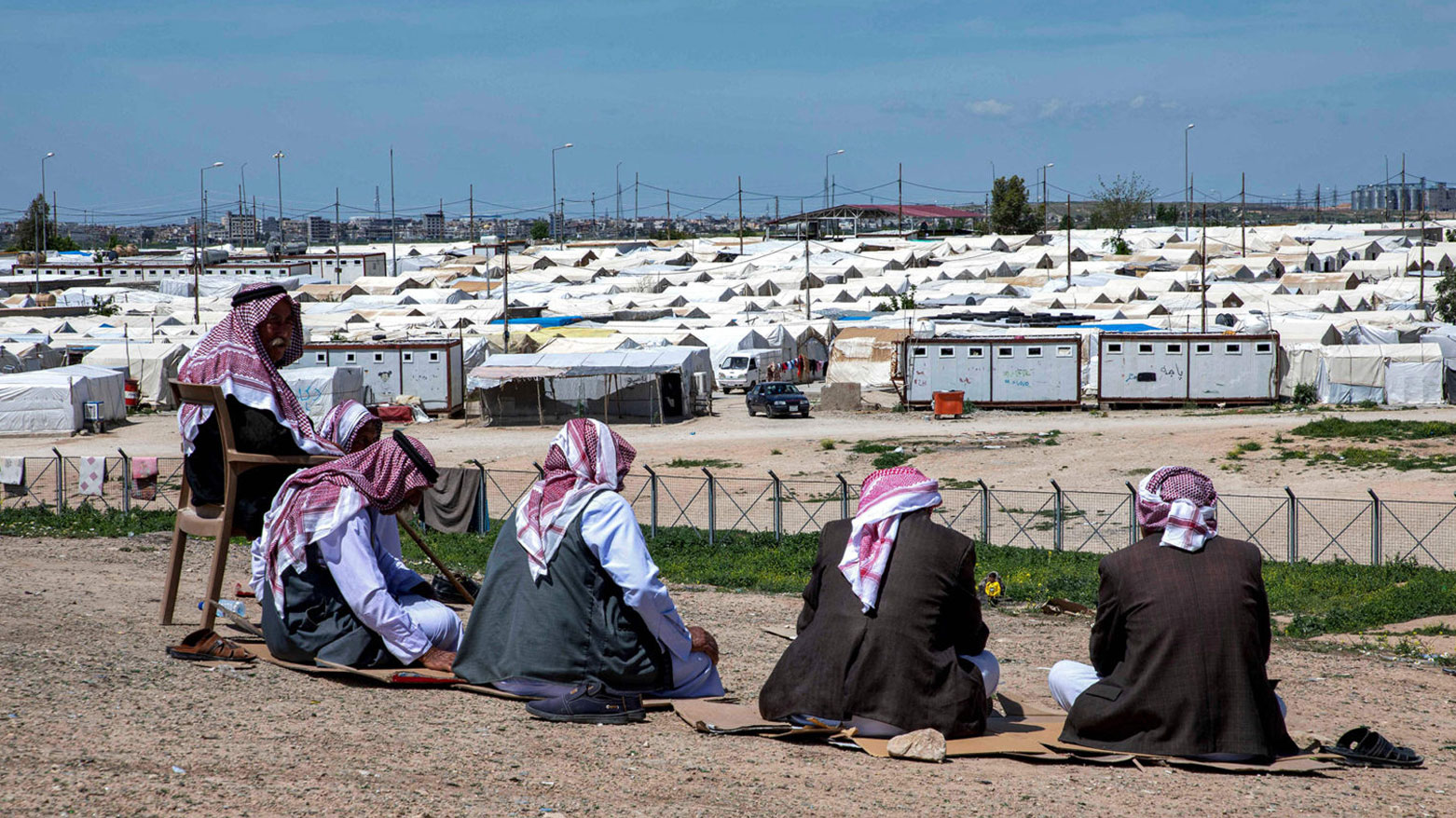Displaced Yazidis Voice Concern Over Manipulated Voter Lists Ahead of Iraq’s Parliamentary Elections
Displaced Yazidis in Duhok and Zakho camps report manipulated voter lists ahead of Iraq's elections, with names duplicated or removed. KDP candidate Viyan Dakhil accuses Baghdad of trying to "silence Shingal's voice," as electoral officials work to correct registry errors.

ERBIL (Kurdistan24) – As Iraq heads toward another round of parliamentary elections, displaced residents of Shingal living in the camps of Duhok and Zakho have voiced growing alarm over what they describe as systematic manipulation of voter lists and deliberate attempts to deprive them of their right to vote.
For thousands of Yazidis and other displaced families still residing in camps years after the Islamic State (ISIS) war, this election represents more than a political event—it is a chance to reclaim representation and justice after years of marginalization. Yet, many now fear that their votes will once again be lost amid bureaucratic and political interference.
In statements to Kurdistan24, displaced Shingal residents said they have detected serious irregularities in the voter registries prepared by Iraq’s Ministry of Migration and Displacement.
“Sheikh Husen,” one of the displaced citizens, said there is deep dissatisfaction with the Ministry’s work, particularly regarding how voter lists have been compiled. “In many cases, the names of members of the same family are registered in different locations,” he said, explaining that some names appear twice, while others have been completely removed from the records. “These are not errors—they are manipulations meant to confuse us and stop us from voting,” he said bitterly.
According to official data, 31,000 displaced Shingal residents currently live across 14 camps, with 26,000 of them eligible to vote. About 75 percent reside in Duhok province and the remaining 25 percent near Zakho’s self-administration areas. To facilitate their participation, 22 election centers and 98 polling stations have been designated within these camps.
Despite this infrastructure, displaced families fear that their ability to cast a vote will be undermined by deliberate administrative obstacles.
Viyan Dakhil, the Kurdistan Democratic Party (KDP) candidate for Shingal and a long-standing advocate for Yazidi rights, expressed serious concern over what she called attempts by Baghdad authorities to marginalize Shingal’s population.
“The Iraqi government and the Ministry of Migration and Displacement are trying to silence the voice of Shingal’s people,” Dakhil told Kurdistan24. “These efforts are unacceptable,” she continued, stressing that all displaced persons in the camps—especially those whose names have not been properly registered in Shingal—must be allowed to vote.
Dakhil called for the election of genuine representatives who can defend the rights of Shingal’s population in parliament. “Our people deserve representatives who will protect their rights and not allow their enemies to use them as political tools,” she said.
In response to the mounting complaints, Hogir Casim, deputy head of the Duhok office of Iraq’s Independent High Electoral Commission, told Kurdistan24 that the Commission had already sent data to Baghdad and was engaged in ongoing talks with the Ministry of Migration and Displacement to resolve issues of duplication and omission.
“We are in continuous communication with the ministry to fix these technical problems,” Casim said, acknowledging that the concerns raised by displaced families were legitimate and would be followed up on.
The situation of Shingal’s displaced voters mirrors broader concerns over the fairness and inclusivity of Iraq’s electoral system, issues raised sharply by Fazil Mirani, the head of the Kurdistan Democratic Party’s Political Bureau Executive Committee, in a recent interview with Kurdistan24.
Mirani described Iraq as a state of “diminished sovereignty” governed by a system structurally designed to perpetuate inequality among its components. In his detailed critique, he highlighted that Iraq’s multi-constituency electoral law systematically disadvantages regions like the Kurdistan Region and minorities such as the Yazidis, while inflating representation in certain southern areas.
Mirani argued that this structure was deliberately crafted to maintain a majoritarian monopoly, saying, “They designed it in such a way that the Shiite brothers must always be the majority.” He emphasized that under this system, the value of a vote in Duhok or Erbil is far less than in the southern provinces, reflecting what he called “a system of injustice.”
For the displaced of Shingal, these structural flaws are felt not in abstract numbers but in daily reality. Many have been living in displacement for nearly a decade—stripped of homes, livelihoods, and now, potentially, their right to political representation.
“They want to keep us as victims, not citizens,” one Yazidi woman at a Duhok camp said. “If we cannot vote, then our suffering continues without a voice.”
Her words echo Mirani’s warning that Iraq’s political process has failed to uphold the principles of partnership, consensus, and balance enshrined in the constitution. The Yazidis of Shingal—among the most persecuted and least represented communities in Iraq—now find themselves at the heart of this failure.
As the elections approach, Shingal’s displaced see their participation not only as a constitutional right but as a litmus test for Iraq’s democratic integrity. “If we are again denied our vote,” said Sheikh Husen, “then Iraq’s democracy means nothing to us.”
Viyan Dakhil echoed this sentiment, urging the authorities to take immediate corrective measures: “Every displaced family must have the opportunity to participate. This election must not become another chapter of our exclusion.”
With ballots yet to be cast, the question remains whether Iraq’s institutions will honor their promise of inclusion—or whether, as Fazel Mirani warned, the cycle of “diminished sovereignty and selective justice” will once again define the fate of the nation’s most vulnerable.
